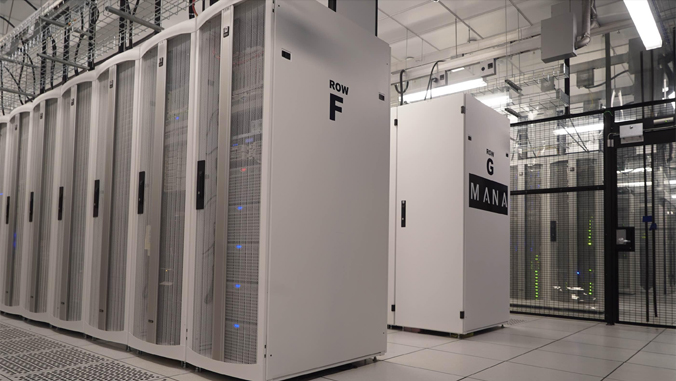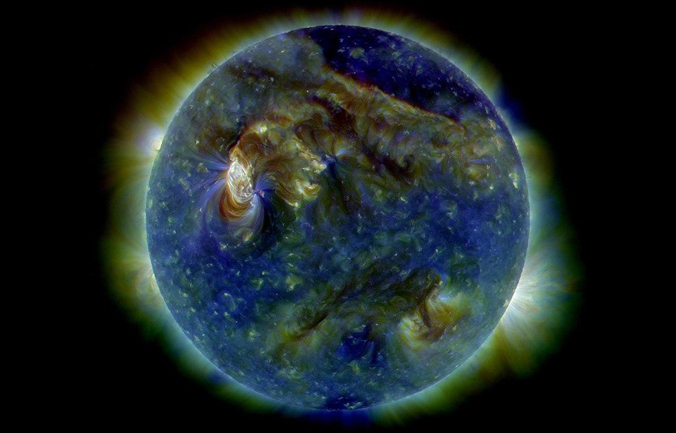
$400K grant to speed high-performance computing, advance research
A second high-performance computing (HPC) cluster at the University of Hawaiʻi has been seeded with a $400,000 National Science Foundation grant. Much like the existing HPC, Mana, the new cluster called Koa will serve as a free inter-campus resource for advancing research in such areas as astronomy, chemistry, oceanography, bioinformatics and data science.
“We are excited about the capacity that Koa will bring the existing computational resource specifically the increase in throughput the new high speed storage system will provide speed-up across existing and new hardware as well as the ability for transferring and processing larger datasets,” said Sean Cleveland, UH Information Technology Services (ITS) cyberinfrastructure senior project manager and principal investigator. “We look forward to enhancing scientific workflows with our science partners in the Institute for Astronomy and the departments of Information and Computer Sciences and Atmospheric Sciences for some targeted, larger datasets and model simulations projects to push science and research forward at UH.”
Computational performance boost
The deployment of Koa will bring 750 terabytes of high-speed storage, eight computational nodes with (48 cores, 256 GB of memory) and two compute nodes that provide another 20 graphics processing units with newer architectures to support machine learning and deep learning workflows. The new high speed storage infrastructure will integrate with the existing Mana HPC to decrease the runtime for many workloads impacted by read and write speeds and significantly increase Mana’s computational throughput.

“We’re grateful for the National Science Foundation support to further expand and enhance our institutional HPC resources,” said Garret Yoshimi, ITS vice president for information technology and chief information officer. “The addition of Koa to our Mana HPC foundation will help us increase the depth and breadth of support for high performance data analytics, AI can build on the benefits of leading edge technologies that will support future discoveries and innovation.“

In addition to adding state-of-the-art computing equipment, the grant will also support advanced technical training and expanded educational and research opportunities for UH students through hands-on immersive training workshops hosted by UH Information Technology Services Cyberinfrastructure and the Hawaiʻi Data Science Institute. Koa resources will also be integrated with Open Science Grid, a national consortium that builds and operates shared computing and data capacity high-throughput computing, allowing researchers increased access to resources nationwide.
–By Maria Dumanlang
